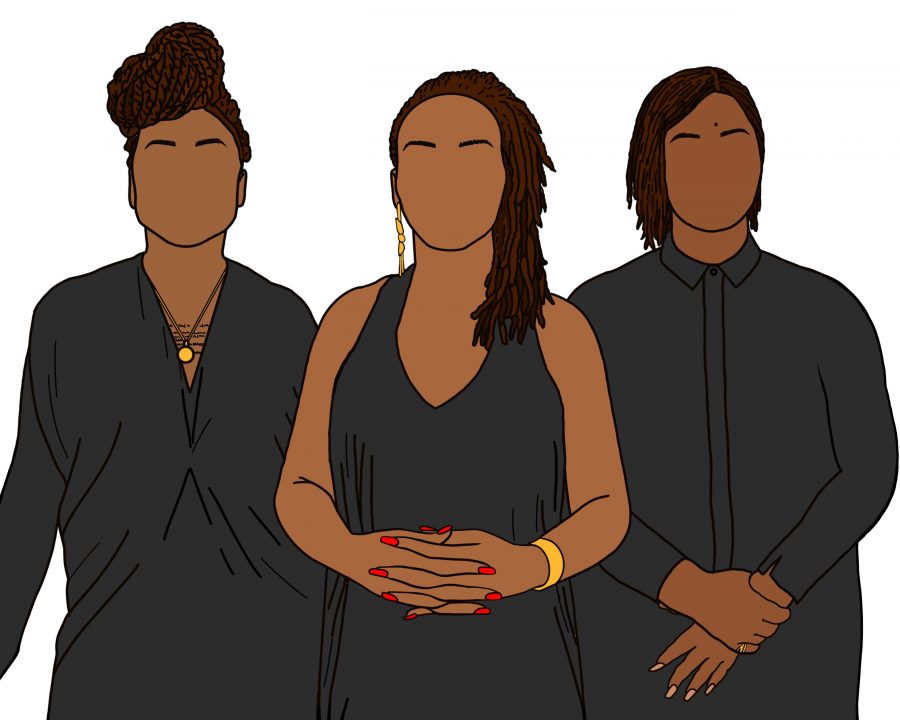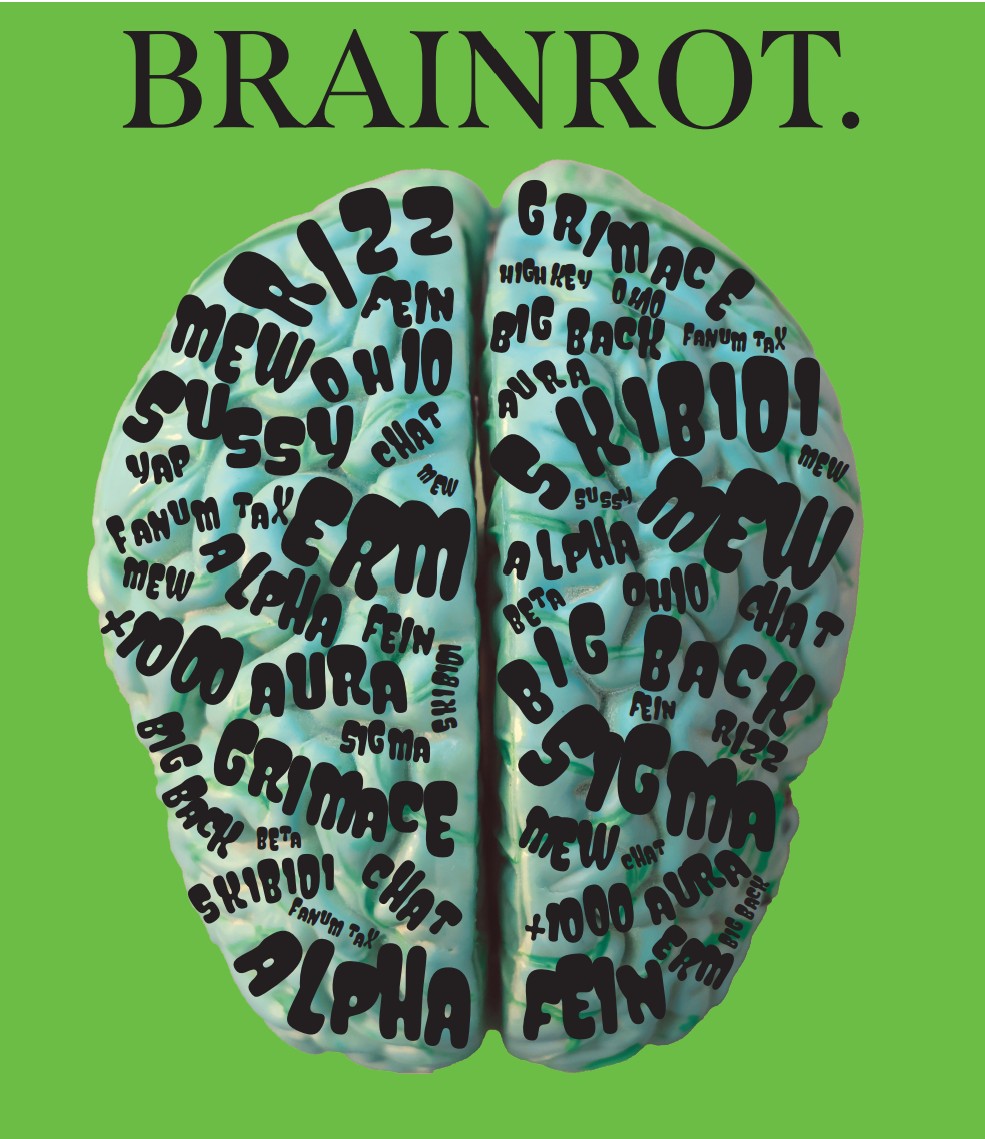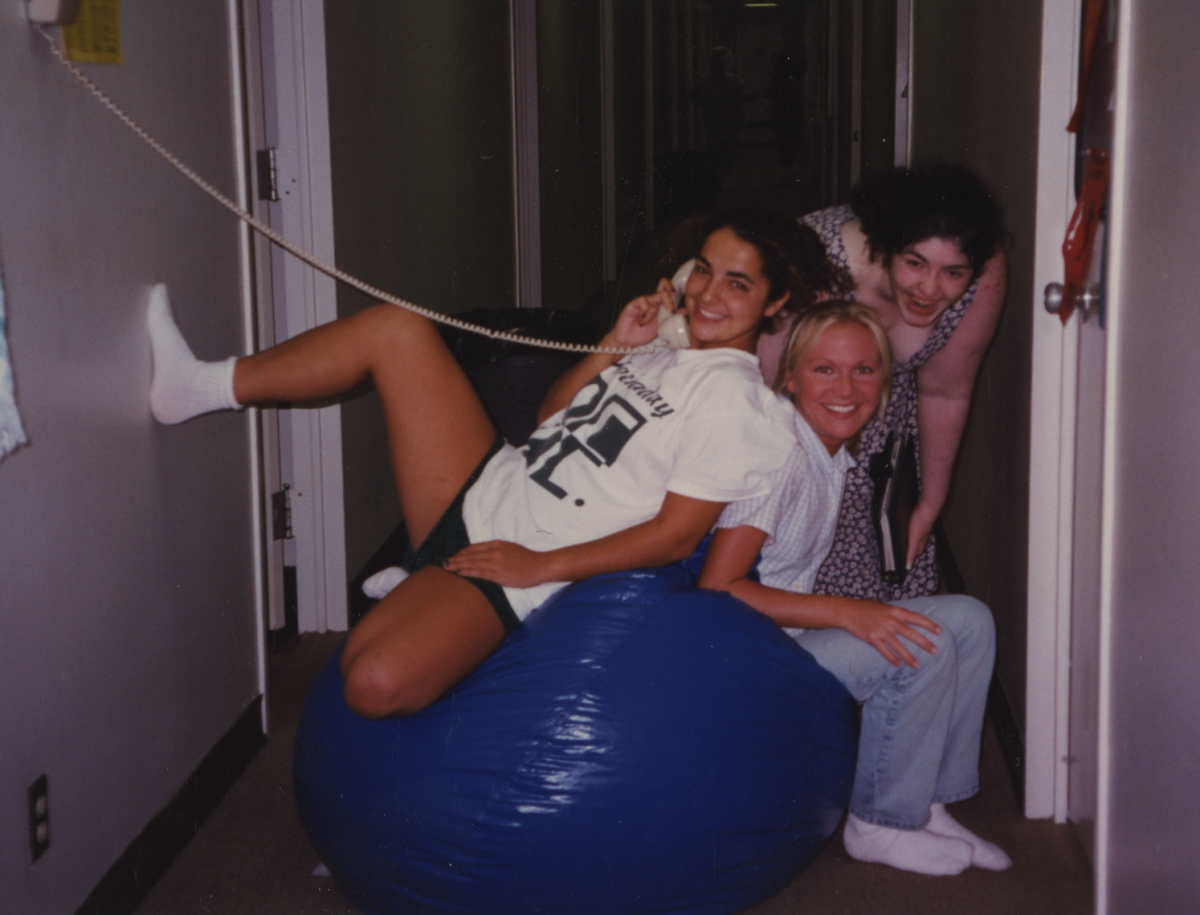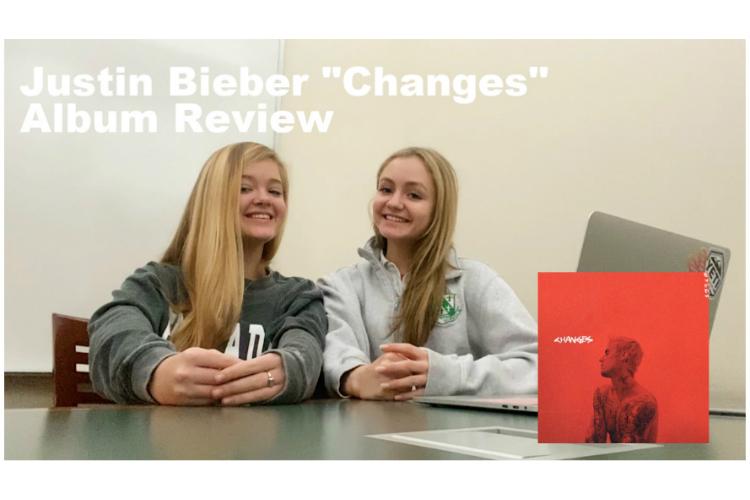//PICTURED ABOVE: Alicia Garza, Patrisse Cullors and Opal Tometi, the founders of the Black Lives Matter movement, created the movement in 2013 upon the acquittal of George Zimmerman who shot and killed Trayvon Martin, a Black unarmed 17-year-old.
Men, women, youths and seniors joined to protest police brutality and racism on May 26 in all 50 states. Immediately following George Floyd’s murder on May 25, protests began to bring attention to and fight against the systemic racism responsible for Floyd’s death and the deaths of countless other African American men and women. Tens of million of people have additionally supported the movement through the hashtag #BlackLivesMatter, using it to spread information and resources on social media sites.
While the Black Lives Matter movement has gained momentum in recent months, it first began several years ago, following Trayvon Martin’s death. On Feb. 26, 2012, neighborhood watch volunteer George Zimmerman shot and killed the unarmed 17-year-old Martin as he walked in his Sanford, Florida, neighborhood. On July 13 of the following year, a jury of six ruled Zimmerman not guilty. Upon his acquittal, Alicia Garza, Patrisse Cullors and Opal Tometi founded Black Lives Matter.
What started as a movement developed into a global network made of roughly 20 chapters between the United States and Canada. Each chapter functions under its own local leaders. Based on current events and the needs of their local communities, the number and activity of chapters can fluctuate.
“[The Black Lives Matter network] has always been somewhat decentralized,” cofounder Tometi said in an interview with the New Yorker. “The power goes on in the local chapter because they know what is going on, and they are the ones familiar with the terrain. Our chapters are the ones leading. We have had some come and go.”
There is no chapter based in the Dallas/Ft. Worth area, according to blacklivesmatter.com. However, the wide reach of the network extends into Dallas through social media, the news and its website. Through these platforms, the Black Lives Matter network provides information, resources and ways to get involved for people regardless of their address. In addition, interested activists can create a chapter through the website at https://blacklivesmatter.com.
With the hashtag #BlackLivesMatter alone, people can locate schedules and information about protests in any given area. Information to help educate people about ways to be allies and to end police brutality also can be found through the hashtag and on the website. The Black Lives Matter website also allows people to sign petitions to help foster change, donate toward the cause and report misinformation circulating about the movement.
Since the movement’s establishment in 2013, protests inspired and organized by Black Lives Matter have helped create change in Dallas. In May and June 2020, protests in the name of Black Lives Matter have succeeded in prompting individual Dallas citizens as well as business owners to join the fight for justice. A number of Dallas restaurants such as Braindead Brewing chose to close their doors during recent protests to highlight the local protests and encourage their customers’ attendance. Others have posted official statements of support for Black Lives Matter on social media and to their own websites and urged others to speak out as well.
In addition to the Black Lives Matter network, other advocacy groups in Dallas foster change for Black lives. Zaria Osimetha, rising Episcopal School of Dallas senior, founded the Student Advocacy Coalition the week of June 21 to generate a sense of advocacy and allyship. The group’s motto is Fighting Injustice Through Education.
“In the wake of the senseless murder of George Floyd and other African-Americans, I feel like I have literally been called to action,” Osimetha said. “I must be a voice in the fight for racial equality and social justice. I can no longer sit on the sideline waiting for ‘someone’ to fix problems that I see and experience most days of my life.”
She said the events of the past several weeks, including hearing student speakers at the Flag Pole Hill rally, inspired her to found SAC with friends from Dallas-area high schools. Their goal is to unite students in pursuit of racial and social justice.
“We hope to do so by uncovering our commonalities, learning about the history of various racial injustices and embracing the intersectionality of our identities,” Osimetha said.
Working alongside Osimetha, many of the student leaders in SAC are members of the Hockaday community. Rising senior Isabella Page, Chair of the Board for SAC, speaks on the newfound success of SAC and the importance of having the coalition in the Dallas community.
“SAC hopes to fight injustice in the Dallas community through education and unity,” Page said. “These values really resonate with me, so when Zaria reached out to me about serving as the Chair of the Board, I was super excited about it. With the help of modern tools like social media and our website, SAC had a super successful launch, recruiting 90+ members in our first day of going public. Our members are absolutely vital to us: they serve as the Coalition’s outlet to the community by planning events and engaging their friends and peers.”
Students, parents, and faculty can learn more at sacdallas.org or follow the Instagram account @sac.dallas.
Finally, in order to fully grasp the Black Lives Matter movement, we asked several current Hockaday students, alumnae and faculty, “What does the phrase ‘Black Lives Matter’ mean to you.” Their responses are highlighted in the slider above.
Story by Anna Gum, Views Editor, and Ava Berger, Editor-in-Chief
Illustration by Kylee Hong

















